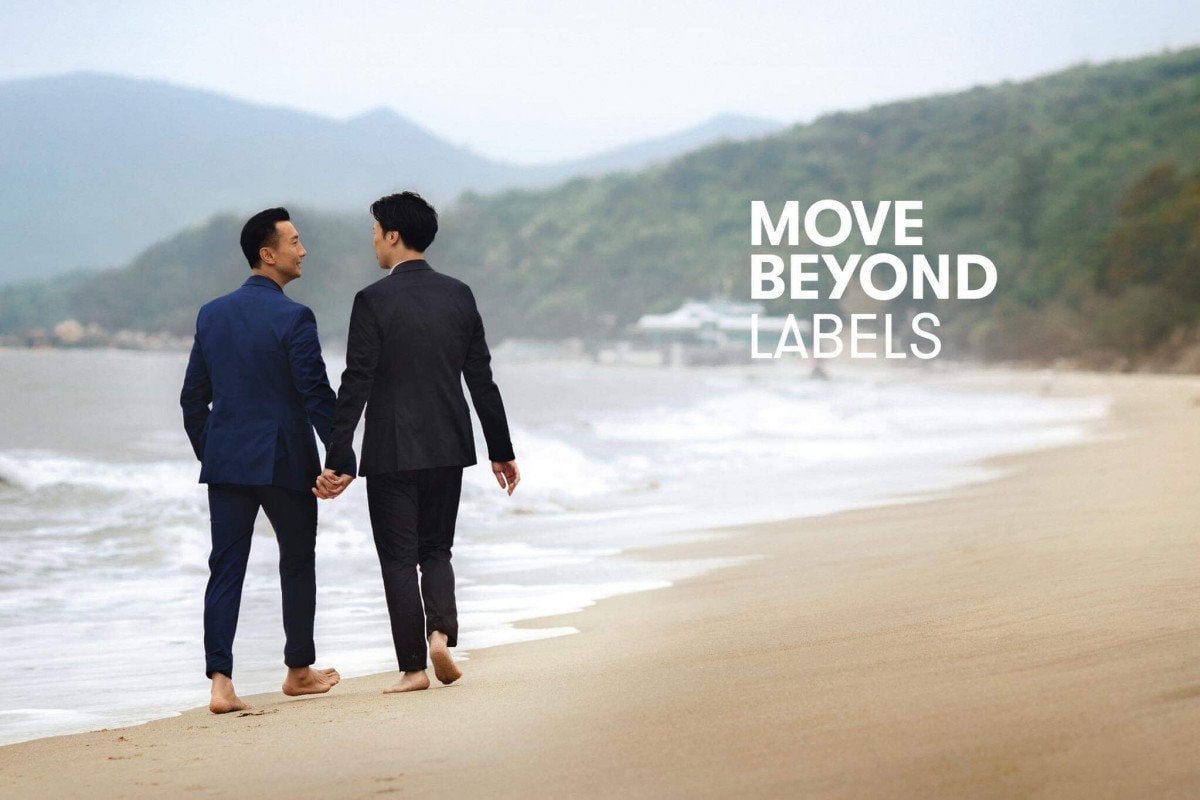Hong Kong, 2022 Gay Games host, banned—then un-banned—an ad showing a gay couple
It was a simple but powerful image: two men, dressed in well-cut suits, strolling barefoot on a beach, hand in hand.


It was a simple but powerful image: two men, dressed in well-cut suits, strolling barefoot on a beach, hand in hand.
The advert was part of Cathay Pacific’s new publicity campaign, dubbed “Move Beyond,” which the Hong Kong airline had described as a “call to action… to lead and blaze a trail of progress.”
That trail hit a roadblock this week when the city’s subway and airport operators decided to ban the advertisement. The ad’s censorship was first reported by the South China Morning Post yesterday (May 20).
The move comes just days after Taiwan became the first country in Asia to legalize same-sex marriage. Moreover, it stands in stark contrast to Hong Kong’s role as the host of Gay Games 2022, the world’s largest LGBT sporting event. The city won the bid in 2017, beating out Washington, D.C.
The uproar from the city’s LGBT community was fierce and swift.
“It’s just so disappointing that something as simple and innocent and beautiful as someone caring for another should receive such vitriolic pushback,” said Bess Hepworth, founder and executive director of Planet Ally, a Hong Kong-based non-profit organization promoting LGBT+ issues.“It’s not just an ad being taken away. It’s hope being taken away,” she said.
Ray Chan, the city’s first openly gay lawmaker, urged Hong Kongers to protest (link in Chinese) by heading to subway stations and the airport and posting photos of themselves holding hands.
MTR, the majority-government-owned subway operator, initially sought to deflect blame by noting that most of its advertising is handled by JCDecaux, a French company with subsidiaries in Hong Kong. Speaking with the South China Morning Post, a JCDecaux spokeswoman noted that adverts deemed “immoral” or that “cause… distaste to the public” are not acceptable, based on its contract with MTR.
Today (May 21), both MTR and the government-owned Airport Authority reversed the ban.
“I’m happy that [the advert] will be posted again,” said Dennis Philipse, the chairman and founder of Gay Games Hong Kong 2022’s bid team. “It shows that Hong Kong is ready to host the Gay Games for first time in Asia in 2022.”
In a statement, the Airport Authority said it had informed JCDecaux that it “deems the visual not in infringement of the AA’s established guidelines on advertisements displayed in the terminal.”
Meanwhile, MTR said that it is “unequivocally committed to equal opportunities” and “supports diversity.” It insisted that JCDecaux had handled the ad in question, and that reports of it of having banned the advert are “untrue.”
A JCDecaux spokesperson confirmed that it had reversed the ban on the ad but declined to comment further.
While progress has been made in recent years, Hong Kong remains institutionally conservative on LGBTQ issues. The city does not recognize same-sex marriage, even though polls have shown that 50% of Hong Kongers support it. The government only began granting dependant visas to legally recognized gay couples last September, following a landmark ruling by the city’s highest court. While the city’s high court ruled in 2017 that a male civil servant’s partner was entitled to the same benefits available to the spouses of heterosexual employees of the civil service, the government won an appeal and the case is now in the city’s highest court.